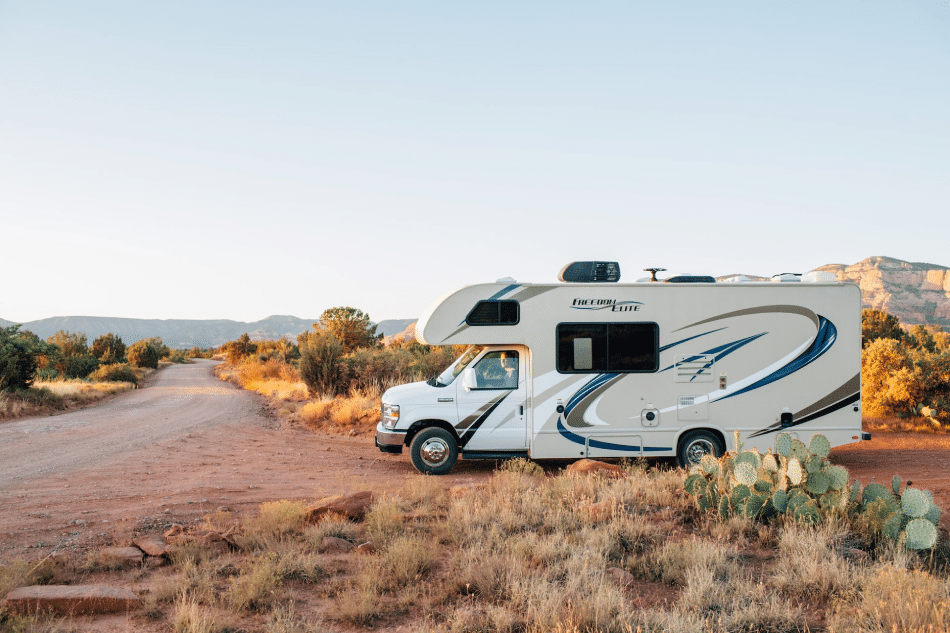But all good things must come to an end, and as with any RV appliance, eventually, your beloved RV air conditioner will need to be replaced.
Replacing an RV Air Conditioner
Depending upon the quality and frequency of maintenance, RV air conditioners have an expected life span of around years 5 to 8 years. If you stay on top of maintenance and replacement parts as needed, your RV’s AC unit can last upwards of 12 years. Neglect the poor thing, and you may need to go AC shopping within 4, give or take a year.
When your RV air conditioner does bite the dust, there will be several routes you can take to go about replacing it.
The first and easiest of these routes is simply to replace the AC unit with the same make and model of the air conditioner as it already has. If you’ve had great experiences with your AC and have no qualms about it, go with this route.
You also have the option to upgrade your AC unit if you have the desire and resources to make that happen. An RVer may want to upgrade their AC to a more energy efficient unit, or, if consistently traveling to very hot regions, to a more powerful model that will put up a stronger fight against the heat.
A less desirable, but potentially necessary option is to save some money and replace your AC with a cheap, low quality air conditioner.
This might be necessary if you do not currently have the resources to invest in anything except a budget AC. This is a less than ideal route to take as a low-quality air conditioner is unlikely to have enough power to sufficiently cool down your rig.
These last two options bring us to our big question: are RV air conditioners universal?
For the most part, yes.
Most rooftop air conditioners require an opening of 14″x14″. This is a fairly reliable industry standard in North America. Some models may have an opening slightly larger or smaller than 14″ but this difference is usually less than 1/4″.
So, if you do need to replace your RV rooftop air conditioner and your RV has a 14″x14″ roof penetration to accommodate your current model, you should have no issue finding a replacement unit that will fit into that penetration.
What to Consider While AC Shopping
Even though most North American rooftop ACs are easily interchangeable, there are still a number of considerations to keep in mind while shopping for a new unit.
Size

Height, length, and width can vary widely among AC units. Height is the most important to consider, especially if you park your camper in a carport or garage for storage. A difference of even two inches could make it impossible to park your rig in its previous spot.
Slight variations in length and width are unlikely to cause any issues, unless your RV’s rooftop is crowded with gear, or has a custom made roof rack. It is common to see ventilation fans, exhaust pipes, solar panels, and crossbars installed on the roof of a camper. If all of the equipment has been pieced together like a jigsaw puzzle, there may not be ample room to fit a longer or wider AC unit.
Before AC shopping, take a peek at your camper’s user manual and see if there are printed dimensions of the air conditioner. If that proves fruitless, clamber up top and take very precise measurements of your current AC.
Weight
In the RV world, more weight equals less fuel efficiency, and with gas prices soaring nationwide, every drop of fuel saved is money in your pocket.
Lightweight RV air conditioners can weigh as little as 70 pounds, whereas larger models weigh upwards of 120 lbs. That’s a lot of AC. Depending upon the engine housed within your motorhome or tow vehicle, a fifty pound difference in weight can have a significant impact on overall fuel efficiency.
Noise and Vibration
Non-ducted rooftop air conditioners tend to be quite noisy. This is chiefly due to the fact that an air conditioner is sending a lot of air through a relatively small hole. This action creates noise. Sometimes tremendous amounts of noise.
Additionally, actions from the compressor, motor, and fans cause vibrations that transfer to the rig and create a low hum sound. While most ACs come with anti-vibration mounting pads, the quality of these pads can vary from model to model.
If you are a light sleeper or are easily bothered by noise/vibration, it’s probably going to be worth investing in a unit that boasts quiet operation and quality anti-vibration mounting pads.

Shape
Any piece of gear or equipment that is installed on the exterior of a camper is going to increase drag as the vehicle moves. As with weight, increased drag decreases fuel efficiency. Look for an RV air conditioner with a nice sleek shape, preferably short and squat, so it sits low on the roof of your rig.
Tall and boxy AC units are significantly less aerodynamic than short wider models and can act like a sail on freeways.
Air conditioners aside, anytime you are purchasing a roof-mounted piece of gear, pay attention to aerodynamics and try to buy the sleekest model available.
Warranty
Most RV air conditioner manufacturers offer some form of warranty when a unit is purchased new from a licensed retailer. Check out what kind of warranty is offered for the unit you are considering purchasing. Any warranty less than a year and I would keep looking. If an RV AC is faulty from the manufacturer, the problem will likely present itself within the first two years of use. After that, you’re likely in the clear.
So, with that in mind, shoot for finding a free warranty at least two years in duration. Luckily, most of the leading manufacturers of RV air conditioners offer two years warranties with purchase.
Power
The strength or “size” of an air conditioner is rated in BTUs, or British Thermal Units. The more BTUs an RV AC has, the “larger” it is (I use quotations here because size in this context is metaphorical). Another way of thinking about it is that an air conditioning unit with more BTUs has more cooling capacity than a unit with fewer BTUs.
Class C motorhomes, and medium sized adventure trailers are generally manufactured with one 13,500 BTU non-ducted, rooftop air conditioner. Large, Class A motorhomes and fifth-wheel travel trailers might have two 13,000 BTU air conditioners installed, or one 15,000 BTU AC.
Snow birds that winter in Arizona often opt for large coaches with two 15,000 BTU air conditioners. That’s enough cooling power to turn the inside of an AC into an ice rink!
Make sure to evaluate how much cooling capacity you need out of an RV AC unit and buy an appropriately sized model.
Tips for DIY Replacement

If you are handy and know a thing or two about electrical work, then you may be able to replace you RV’s air conditioner on your own. Below are some important tips that will help you to install your new AC cleanly, professionally, and most importantly, leak-free!
- Power off: Completely shut off power to all of your RV’s circuits before starting any electrical work. This will ensure you don’t shock or electrocute yourself, and that no accidental shorts fry any of your electrical equipment.
- Get some help: Air conditioners are heavy. Ask at least two of your friends or family members to give you a hand lowering the old AC unit off the roof, and raising the new one up. This is definitely not a scenario to try soloing it. You’d likely end up with a busted AC and a busted back.
- Remove old caulk: Use a scraper and some sandpaper to remove any pre-existing caulk or debris around the AC hole. Be as thorough as possible. Old caulk has the potential to create leakage points once the new unit is installed.
- Prime it up: Any exposed metal needs to be primed using an exterior primer so as to prevent the build up of rust. Rust will corrode the metal around the penetration and result in weakened structural integrity and future leaks. Any rust found after removing the old unit should be sanded away, and primed fresh.
- Read installations instructions: In my days as an RV technician, I saw a lot of repair work that was done because the owner didn’t read the installation instructions the first time around. Trust me, I get it. As a carpenter and builder, I also think I am too good for instructions. But seriously, just take 5 extra minutes to read the instructions, you’ll probably learn something.
Frequently Asked Questions
See what our readers are asking us!
Are there 12V air conditioners?
Yes, there are, but they are rare and expensive. 12-volt ACs just don’t make a whole lot of sense. ACs work best when they can consume a lot of electricity, and when that electricity is coming from a consistent source like shore power from a power hookup or a generator.
Can I run an air conditioner all day?
Yes, air conditioners are designed to be run throughout the day and into the night. Just make sure to adjust the thermostat of the unit so that the compressor has a chance to cycle on and off every once and a while.
How much does an RV air conditioner cost?
Ductless rooftop air conditioners cost between $700 and $1800 for a new unit. Models with unique specifications cost upwards of $2,500.



